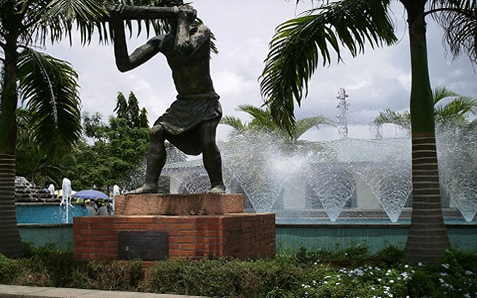By Joe Etokudoh
Modern Nigeria can be traced as the creation of the British Colonial Government. It is in fact a platitude to point out that what the British empire impressed on Nigeria during the 19th century was an artificial creation super imposed on groups of varied ethnic communities. The artificial boundaries enclosed people with few common characteristics and many cultural differences. it should also be remembered that the creating of Nigeria as an entity by the British Government was partly an attempt to save expense as well as fortify the frontiers because of competition from both the French and the governor. The people who inhabited the area now known as Nigeria had always lived in separate and often contentions communities. Though their frontiers were constantly shifting, yet they ranged at all times, across the areas outside the ones enclosed by the colonial government in Nigeria. For example, some Yoruba Communities of Western Nigeria are found today in Benin Republic, the Efuts and Quas of South Eastern Nigeria are in the Cameroons while some Hausas and Fulanis Ethnic groups are in Niger, Chad and Cameroon Republic. (Akinyemi 1974. 13)
As the interest increased with the phenomenal growth of trade on palm produce, cocoa, cotton, groundnuts and rubber, after the suppression of the slave trade, the colonial government in 1849 appointed John Beecroft, a trader, as the British consul for the Bight of Benin and Biafra. The headquarters was in Fernando Po. The very beginning of a country, named Nigeria was then created in 1900. The name Nigeria was first suggested by Lord Luggard’s wife in 1897. Before 1900, the area existed as three territories governed by three different authorities. The first territory was the colony and protectorate of Lagos which was made up of Lagos and the Western States except Owo in Ondo State. The officials that governed the area were directly responsible to the British colonial office. The second territory was the delta area which was in 1885 proclaimed the oil rivers protectorate. When in 1893 the territory was extended inland the name was changed to the Niger coast protectorate.
The area comprised the four Eastern States (Anambra, Imo, Cross River and Rivers) Bendel State, Tiv, Idoma and Owo Divisions) . The governing officials were directly responsible to the British Foreign Officer. The third territory known as the Niger Territories included the present states of Northern Nigeria except the Tiv and Idoma Divisions. The area also included the Northern port of Afenmal division and the parallel strip of land on the bank of the Niger down to Akassa and Burutu in the Niger Delta. This territory was ruled by the royal Niger Company.
It is difficult to tell precisely where the boundaries of these three territories were. This imprecise nature of the boundaries brought about unhealthy rivalries among the three British Government administration of the area on the 1st January, 1900. The country was then divided into two, namely, the southern and northern protectorates. In 1906, Lagos colony was merged into Niger coast protectorate to form the colony and protectorate of southern Nigeria. This was the beginning of the socio – political dichotomy of Nigeria into Southern and Northern protectorates.
In 1914, the two protectorates were merged to form a single territorial unit known as Nigeria. However, administratively and politically, the two protectorates had since remained two dichotomous entities (Sada 1986 P.3). The reason for the persistence of such a dichotomy may be depended in terms of its socio – cultural diversities. It could also be caused by the country’s geographical, religious and political background. According to Akinyemi 1974 p.10) Luggard erroneously amalgamated the two protectorates because he wanted the south to subsidize the Northern provinces that had a severe budgetary deficit. There were other reasons for this unwholesome wedlock such as the need to co-ordinate the railway policy , the need for the north and south to be served with sea ports essential for bulk shipment of goods and the two protectorates being governed by the same power made unification sensible and governance less expensive. The colonial government also fortuitously divided the country along the lines of religion. The dynamic and proselytizing religions in the country were Islam and Christianity. The North is predominantly Muslim except for the middle belt) , while the south is predominantly Christian. The then differential colonial socialization of the country following these lines further exacerbated the north – south dichotomy.
 Newsfront Online …Telling the Public as it is
Newsfront Online …Telling the Public as it is




